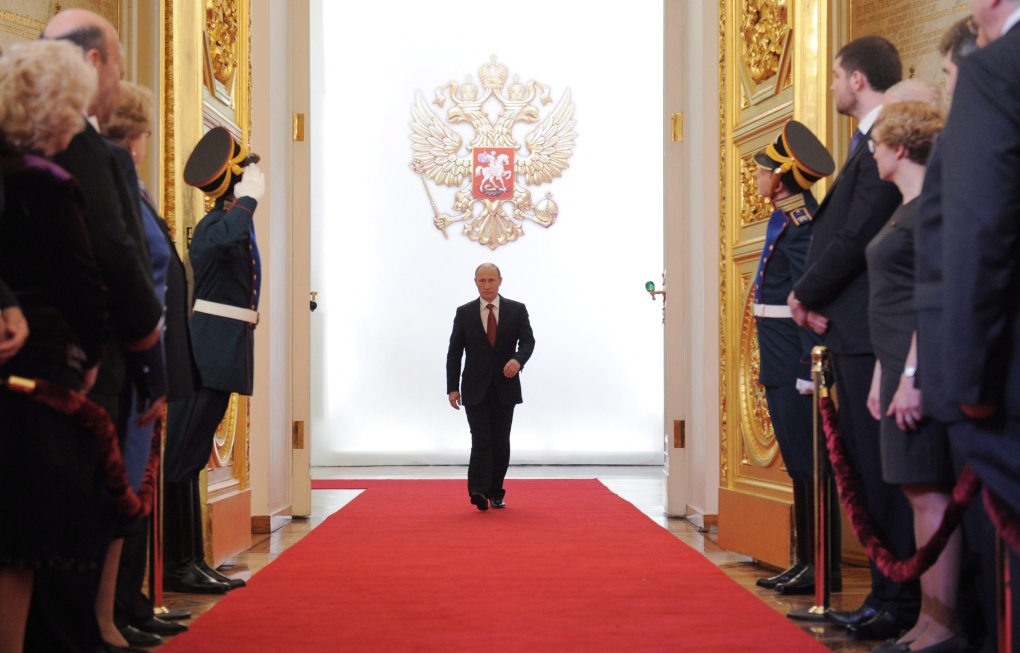 What makes a democracy?
What makes a democracy?
Debated, defended, and contested by some of humankind’s greatest philosophers, this idea has caused real misery and death, but has also brought peace and prosperity to billions of people. The battle between philosophers from Aristotle to Schumpeter was not fought in their ivory towers, but on the streets of Philadelphia, Paris, Moscow and many more.
While Washington, Robespierre, and Lenin all interpreted the ideal differently, they were united in their opposition to authoritarian monarchs dictating how people live. The same belief united the people of Hungary, Poland, and Eastern Germany to overcome the dictatorship of the “Big Brother” and to strive for independence, causing the collapse of the Soviet Union, which finally dissolved in 1991.
Once again, 75 years after the Russian People first stood at the crossroad of autocracy and democracy marked by the death of Europe’s last absolute monarchy, they had to decide the fate of their country. Only this time, they withstood populist calls of eager despots to join the world´s liberal democratic order, it seemed.
Now, twenty one years into President Putin’s reign, few people would still contest the classification of Russia as a failed democracy.
It is as far away from democratic rule as ever. Nothing more than an oligarchy, a small elite, dictates policy in their own favor. They are nothing short of “Stationary Bandits” (M. Olson, 1993). Now, the Russian Oligarchy attempts to rewrite entire constitutions and even the history of their country. In Russia, factual accuracy no longer matters. In Russia, Putin matters.
President Putin has proven his ambitions to become “Dictator perpetuo” multiple times: in outmaneuvering and imprisoning political opponents[1], alleged extrajudicial killings[2], weakening Russian Federalism[3], extending his term-limits[4], placing loyal marionettes in key position[5], exploiting the country’s resources for personal gains[6] and vote rigging[7]. The list is long.
After earlier concealed and modest “reforms” and actions, Putin took a more aggressive approach in finalizing his consolidation of power late last year.
It is a characteristic of every autocracy to rewrite history to legitimize its elite´s rule. However, rewriting entire historical narratives and accepted truths is less common for regimes maintaining the illusion of democratic institutions. Blaming Poland for the outbreak of World War II is absurd, as it is as far away from historic factuality as possible. The reason behind this is simple, as the former KGB officer has rarely hidden his ambitions for greater Russian influence, considering the events in Ukraine and Georgia. The canonization of the Soviet dictatorship in Russia’s historical narrative is a path to legitimizing territorial claims on independent states.
Putin´s claims even led to major diplomatic conflicts during the remembrance of the liberation of the German concentration camp Auschwitz by the Soviet Army on 27 January 1945.
Only a few weeks after his endeavors in historicity, on January 15th 2020, Putin paved the way for constitutional amendments by forcing the unanimous resignation of the Russian Government.
Peripheralizing the unpopular former President-turned-Prime Minister Medvedev and replacing him with the loyal but unknown technocrat Mishustin supports Putin´s aim of securing yet another absolute majority for his party, United Russia, during the 2021 Duma elections.
Prime Minister Mishustin, former “taxman of the future” (Financial Times, 2019), is a strategic choice in the pursuit of this goal, as he has neither the ambition to oppose Putin´s amendments, nor does the Russian public know him well. All that the pro-Kremlin media reports is his flawless record and experience in economic policies, very much to the pleasure of the Russian public angered by the economic stagnation the country has faced[8]. Putin´s allies might portray this as a president listening to his people, but in the end, it only serves his self-interest. And those interests do not align well with the general interest of prosperity and the absence of corruption.
The Question remains: What makes a democracy? Finding a positive answer to this question is an impossible quest to fulfill, as many of the world’s greatest philosophers have tried, and none has succeeded so far.
Still, one truth holds validity, regardless of alternating historicity: Russia is not a democracy. And for as long as Putin reigns, it never will be. This is not Russia, it is Putin’s ambition.
[1] https://www.nytimes.com/2019/07/24/world/europe/aleksei-navalny-arrested.html, 02/02/2020
[2] https://www.washingtonpost.com/news/worldviews/wp/2017/03/23/here-are-ten-critics-of-vladimir-putin-who-died-violently-or-in-suspicious-ways/, 02/02/2020
[3] https://carnegie.ru/commentary/73369, 02/02/2020
[4] https://edition.cnn.com/2008/WORLD/europe/12/30/russia.presidential.term.extension/, 02/02/2020
[5] https://imrussia.org/en/politics/436-putin-the-puppet-master, 02/02/2020
[6] https://www.foxbusiness.com/features/what-is-russian-president-vladimir-putins-net-worth, 02/02/2020
[7] https://www.aljazeera.com/news/2018/09/russian-official-calls-election-run-vote-fraud-180919172152699.html, 02/02/2020
[8] https://www.themoscowtimes.com/2019/05/27/the-russian-economy-is-stagnating-a65760, 02/02/2020
Other posts that may interest you:
- Local Victories for Turkish Opposition — A Sign of Hope?
- Are France and Japan a Mismatch Made in Heaven?
- Mes yeux sont comme cette île
- A Reflection on Dark Tourism
- Cadavre Exquis : Goodbye stranger
Discover more from The Sundial Press
Subscribe to get the latest posts sent to your email.





